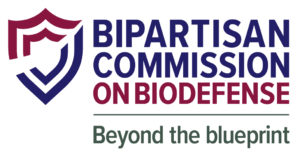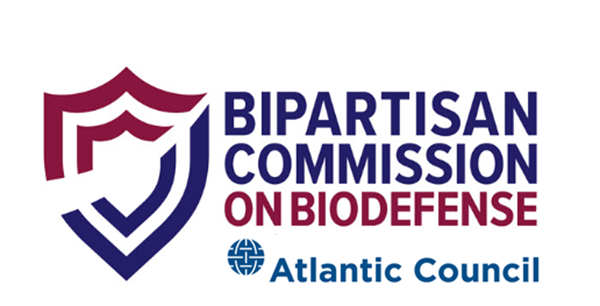Commission Warns Critical Infrastructure At Biological Risk

FOR IMMEDIATE RELEASE
Contact: Steve Aaron
SRA Communications
(717) 554-8614
steve@SRACommunications.com
|
COMMISSION WARNS CRITICAL INFRASTRUCTURE AT BIOLOGICAL RISK New Commission Report Details Immediate Actions to Defend the Nation’s Critical Infrastructure Against Biological Threats WASHINGTON, D.C. (Oct. 5, 2021) – As the Biden Administration and Congress continue to negotiate details of a federal infrastructure package, the Bipartisan Commission on Biodefense released a new report today entitled, Insidious Scourge: Critical Infrastructure at Biological Risk. The report urges the Administration, Congress, and the private sector to reduce biological risk by protecting infrastructure, sharing and securing information, maintaining public works and services, and ensuring public health and safety. “COVID-19 decimated many organizational operations across all 16 of the critical infrastructure sectors that keep this Nation going,” said Commissioner and former U.S. Representative Jim Greenwood. “Current estimates see the COVID-19 pandemic costing the United States at least $16 trillion. Working together to implement the recommendations in this report, public and private sector critical infrastructure leaders can prevent the sort of cascading failures they experienced during the pandemic and get ahead of the next biological event.” “COVID-19 continues to demonstrate just how devastating a biological event can be to our Nation’s critical infrastructure (the 16 sectors composed of physical and virtual assets, systems, and networks vital to national security, economic security, and public health and safety). Pandemics caused by coronaviruses, influenza, and other pathogens have decreased available manpower for all critical infrastructure due to illness and death, and specifically impeded aviation and other transportation systems commercial facilities that host mass gatherings, schools, efficient operation of government facilities, our ability to produce and provide medical countermeasures, while increasing demand for power, water, and other critical resources,” said Commission Co-Chair, former Senator Joe Lieberman. “The federal government needs to exert leadership and work with the private sector and international partners to manage and reduce biological risk to critical infrastructure now.” “I’ve seen the good work the federal government and private sector have accomplished in the critical infrastructure arena firsthand. COVID-19 is not the first biological event to which they have responded and it will not be their last,” said former Secretary of Homeland Security and Commission Co-Chair, Governor Tom Ridge. “The critical infrastructure community should reflect on their historical experience dealing with outbreaks, epidemics, and pandemics; take the targeted actions identified in this report; and ensure that the critical infrastructure we need for our economy and society will continue to function during any biological crisis.” Those interested can download the new report here. |
 |
|
About the Bipartisan Commission on Biodefense The Bipartisan Commission on Biodefense was established in 2014 to conduct a comprehensive assessment of the state of U.S. biodefense efforts, and to issue recommendations to foster change. The Commission’s 2015 report, A National Blueprint for Biodefense: Leadership and Major Reform Needed to Optimize Efforts, identified capability gaps and recommended changes to U.S. policy and law to strengthen national biodefense while optimizing resource investments. In its latest report, Biodefense in Crisis: Immediate Action Needed to Address National Vulnerabilities, the Commission described the extent to which the federal government has implemented the Commission’s recommendations. Other Commission publications have addressed critical needs for agrodefense, biodefense budgeting, diagnostics, a science and technology Apollo Program for Biodefense, and State, Local, Tribal and Territorial response capabilities. In September 2018, the White House released the National Biodefense Strategy, a top recommendation from the Blueprint, and in September 2021 released the American Pandemic Preparedness plan, which includes recommendations from the Commissioner report on an Apollo Program for Biodefense. The Commission continues to address biodefense challenges and to urge reform. Former Senator Joe Lieberman and former Governor Tom Ridge co-chair the Commission. Hudson Institute is the Commission’s fiscal sponsor. |
